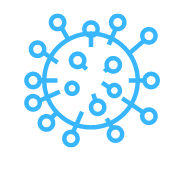What is Sinus congestion? Understanding Sinus congestion
What is Sinus congestion?
Sinus congestion, also known as a stuffy nose, is a condition in which the nasal passages become blocked or congested. This occurs when the tissues lining the sinuses and nasal passages become inflamed and produce excess mucus. Sinus congestion can be caused by various factors, including allergies, colds, sinus infections, and nasal polyps. It is characterized by symptoms such as difficulty breathing through the nose, nasal discharge, facial pressure or pain, headaches, and decreased sense of smell. Treatment options for sinus congestion may include over-the-counter decongestants, nasal sprays, saline rinses, and in severe cases, prescription medications or surgical interventions.
Understanding Sinus congestion
Sinus congestion refers to the condition in which the nasal passages and sinuses become blocked or inflamed. This can lead to symptoms such as stuffy or runny nose, facial pressure or pain, headache, and difficulty breathing.
Sinus congestion can be caused by various factors, including allergies, colds or flu, sinus infections, and nasal polyps. Allergens such as pollen, dust mites, pet dander, and mold can trigger an allergic reaction in the sinuses, leading to congestion. Colds and flu viruses can cause inflammation and swelling of the nasal passages, resulting in congestion. Sinus infections occur when the sinuses become infected with bacteria, causing inflammation and blockage. Nasal polyps, which are small growths in the sinuses, can also cause congestion by obstructing the nasal passages.
Common symptoms of sinus congestion include a blocked or stuffy nose, facial pain or pressure, a runny nose, cough, headache, and a decreased sense of smell or taste. In severe cases, it may also lead to fever, fatigue, and dental pain due to the pressure exerted on the facial structures.
Treatment for sinus congestion depends on the underlying cause. Over-the-counter decongestants and nasal sprays can provide temporary relief by reducing nasal inflammation and opening up the airways. Saline nasal rinses can also help to flush out mucus and relieve congestion. In cases of sinus infections, antibiotics may be prescribed. Managing allergies and avoiding triggers can also help prevent sinus congestion.
If sinus congestion persists or becomes chronic, it is advisable to consult a healthcare professional for further evaluation and treatment options.
Causes and treatments for Sinus congestion
Sinus congestion, also known as nasal congestion, can be caused by several factors, including:
1. Common cold or respiratory infections: Viral or bacterial infections can cause inflammation and swelling of the nasal passages, leading to congestion.
2. Allergies: Allergic reactions to substances such as pollen, dust mites, pet dander, or certain foods can trigger sinus congestion.
3. Sinusitis: Inflammation of the sinuses due to infection, allergies, or structural abnormalities can result in nasal congestion.
4. Deviated septum: A deviated nasal septum, which is the wall that separates the two sides of the nose, can obstruct airflow and cause congestion.
5. Environmental factors: Dry air, pollution, strong odors, and irritants like smoke or chemicals can irritate the nasal passages and lead to congestion.
Treatments for sinus congestion depend on the underlying cause and may include:
1. Nasal decongestants: Over-the-counter nasal sprays or oral medications can help shrink swollen blood vessels in the nasal passages, providing temporary relief from congestion. However, prolonged use of nasal decongestant sprays can lead to rebound congestion and should be avoided.
2. Saline nasal irrigation: Using a saline solution or a neti pot to rinse the nasal passages can help clear out mucus, irritants, and allergens, reducing congestion and promoting sinus drainage.
3. Steam inhalation: Inhaling steam from hot water or using a humidifier can moisten the nasal passages, thinning mucus and relieving congestion.
4. Allergy medication: If allergies are the underlying cause of sinus congestion, antihistamines or other allergy medications may be prescribed to reduce inflammation and relieve symptoms.
5. Nasal corticosteroids: These nasal sprays help reduce inflammation in the nasal passages, providing long-term relief from congestion associated with allergies or sinusitis.
6. Antibiotics: If a bacterial infection is causing sinus congestion, a doctor may prescribe antibiotics to treat the infection and reduce inflammation.
7. Surgery: In cases where structural abnormalities like a deviated septum or nasal polyps are causing chronic sinus congestion, surgical intervention may be necessary to correct the issue and improve airflow.
It is important to consult with a healthcare professional for a proper diagnosis and appropriate treatment plan for sinus congestion.
